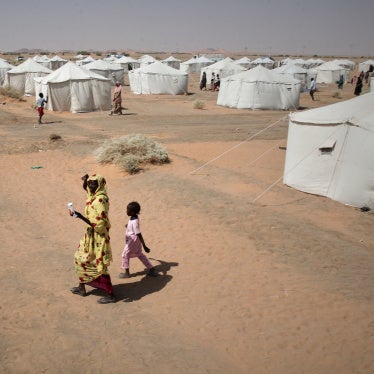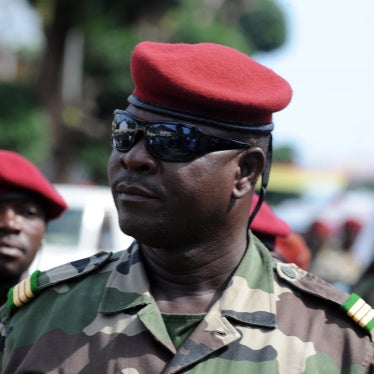(New York) - The brutal war in Burundi is increasingly involving other countries in Central Africa, and the United Nations tribunal for Rwanda should be expanded to include serious crimes being committed in Burundi, Human Rights Watch said in a new report released today.
The report offers the first detailed evidence of Rwandan Hutu participating in the insurgency in Burundi, and suggests that they represent almost half the combatants in some rebel units operating around Bujumbura. Many of them are soldiers of the former Rwandan government responsible for the 1994 genocide of Tutsi in Rwanda. The previously close collaboration recently fell apart in some units, however: the report describes how one hundred Rwandans were slaughtered by their comrades in the FNL (Forces Nationales de Libération).
The report also describes the slaughter of more than two hundred civilians by the Burundian armed forces, the FNL, and the CNDD-FDD (Conseil National pour la Défense de la Démocratie-Forces pour la Défense de la Démocratie; now more commonly called the FDD). The report gives evidence of two recent insurgent attacks on humanitarian agencies.
In the most recent round of negotiations to end the Burundian war, negotiators and foreign observers for the first time talked openly of an amnesty for such crimes and for other killings of tens of thousands of civilians during the six-year old war.
"An amnesty in Burundi is exactly the wrong direction to take," said Peter Takirambudde, executive director of the Africa division of Human Rights Watch. "Many of the killings in Burundi, whether perpetrated by Tutsi or by Hutu, were crimes against humanity. A U.N. Commission has described some of them as genocide. How can there be any hope of justice and order in Burundi if crimes of this magnitude are left unpunished?"
Human Rights Watch urged the creation of a new division of the existing International Criminal Tribunal for Rwanda to prosecute crimes committed in Burundi. It also recommended using foreign jurists within Burundian courts to speed judging the thousands of persons accused of ethnic killings and other attacks since 1993.
"If a peace is cobbled together without justice for Burundi, this will be felt throughout the region," said Takirambudde. "Given the bitterness of ethnic tensions in Central Africa, the failure to insist on accountability for crimes in Burundi will encourage ruthless leaders to choose ethnic slaughter as a way to defeat their enemies. And seeing killers escape punishment will make people of all groups more open to mobilization on ethnic grounds."








